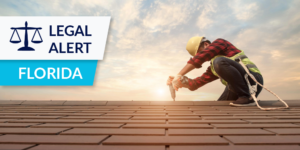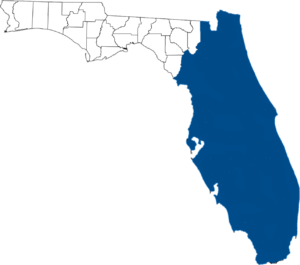
In response to the damage left in the wake of Hurricane Ian, some of Florida’s contractor licensing requirements have been suspended.
On October 1, 2022, the Florida Department of Business and Professional Regulation issued Emergency Order 2022-03 to help with the recovery efforts. Here’s what Florida contractors need to know about this new order.
FL DBPR Emergency Order 2022-03
The Secretary of the Florida DBPR, Secretary Melanie Griffin, on October 1, issued Emergency Order 2022-03 to suspend certain construction contract licensing requirements to assist in the recovery process for areas affected by Hurricane Ian.
The stated purpose of this emergency order is as follows:
“Hurricane Ian and the damage it caused poses a significant threat to the entire State of Florida, and, as such, it requires that timely precautions are taken to protect the communities, critical infrastructure, and general welfare of this State.”
This order is retroactively effective on all building permits applied for or obtained between September 23 until the order expires on November 22, 2022.
Furthermore, these temporary suspensions of licensing rules and requirements only apply to specific counties within the State of Florida, 44 to be exact.
These counties include:

Alachua, Baker, Bradford, Brevard, Broward, Charlotte, Citrus, Clay, Collier, Desoto, Duval, Flagler, Gilchrist, Glades, Hardee, Hendry, Hernando, Highlands, Hillsborough, Indian River, Lake, Lee, Levy, Manatee, Marion, Martin, Miami-Dade, Monroe, Nassau, Okeechobee, Orange, Osceola, Palm Beach, Pasco, Pinellas, Polk, Putnam, St. Johns, St. Lucie, Sarasota, Seminole, Sumter, Union, and Volusia.
Essentially, this order alleviates some of the barriers for Florida contractors to perform roofing work in an effort to assist in the recovery from Hurricane Ian.
So what do Florida contractors need to know about this Emergency Order?
There are two main exceptions that you need to know.
1. Roofing work will not need to be subbed out
First and foremost, general, building, or residential contractors will no longer be required to subcontract roofing work as required under Fla. Stat. §489.113(3).
Typically, any electrical, mechanical, plumbing, roofing, sheet metal, swimming pool, or air-conditioning work is required to be subcontracted out to a contractor who is certified or registered in that respective trade. Unless, of course, that general, building, or residential contractor is already certified or registered for that specific trade.
Under this Emergency Order, roofing work no longer will need to be subcontracted out. More specifically, work for the repair and installation of any roof type.
2. Registered contractor geographic limitations suspended
The second major change under this Emergency Order specifically applies to “registered contractors.” In Florida, a registered contractor can only perform work in the particular county, municipality, or development district where they are registered under Fla. Stat. §489.117.
While this order is effective, registered contractors may perform work in any of the aforementioned counties listed above. However, they must submit their registration, proof of compliance with any applicable worker’s compensation requirements, and proof of liability and property damage insurance to the county where they plan to do work. If the registered contractor complies with all of these requirements, they cannot be found guilty of unlicensed contracting for the duration of the Emergency Order.
Additional resources for roofing and restoration work
In addition to these licensing rule suspensions, there are a number of other things Florida contractors and homeowners alike should keep in mind. Here are a few other resources that may prove useful: